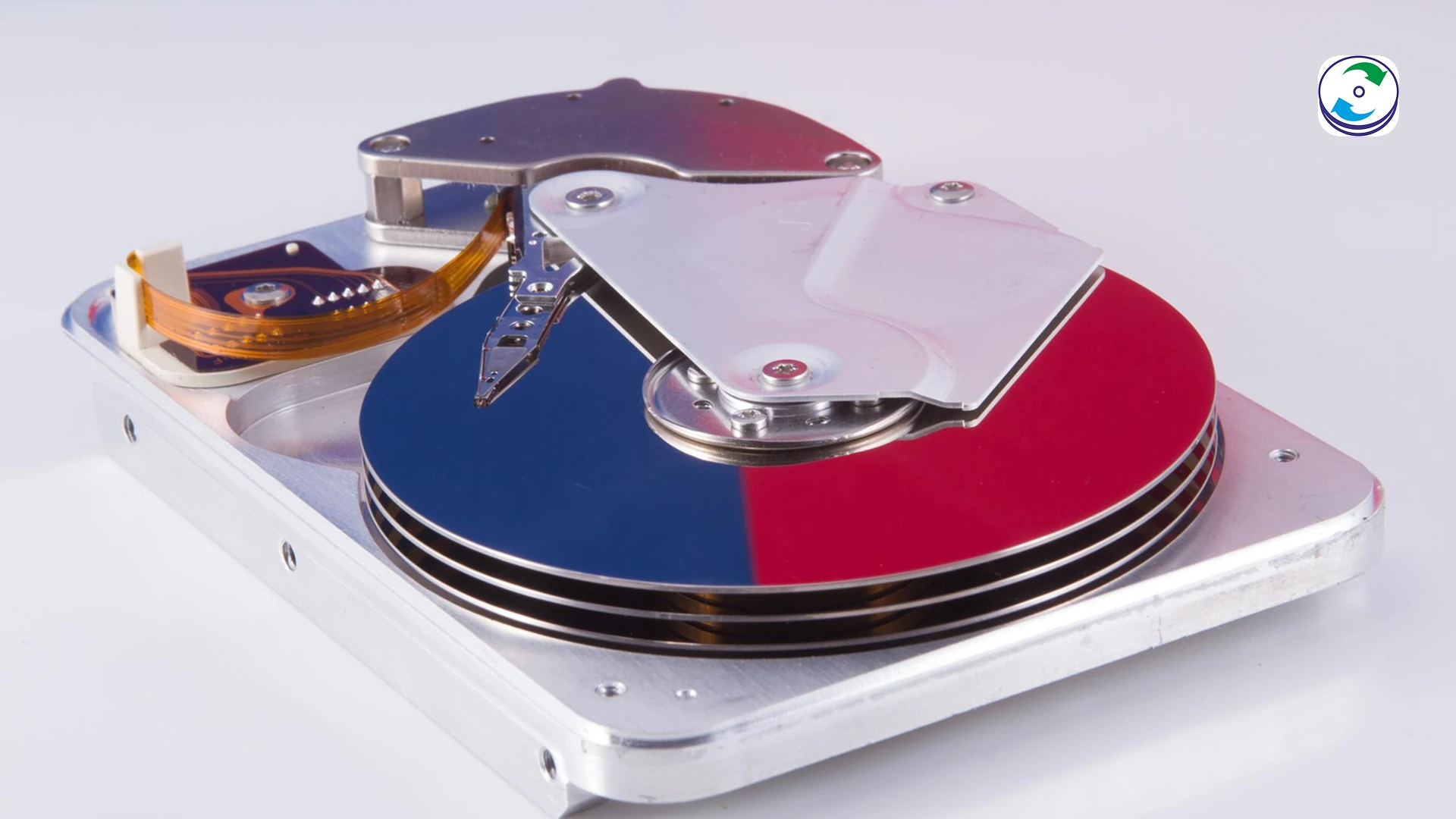Hard Disk Data Recovery in the UK: Tips, Tools, and Trusted Services

Introduction
Life can come to a standstill when your hard disk fails, threatening precious memories and critical files. In the UK, understanding the intricacies of hard disk data recovery can mean the difference between despair and restoration. This guide is designed to arm you with essential tips, reliable tools, and trusted services to help you navigate this often-stressful experience. Whether you’re facing a minor hiccup or a catastrophic data loss, knowing your options can empower you to reclaim what you’ve lost. Dive in as we explore the best practices for data recovery, the tools that make the process smoother, and the reputable services that have earned the trust of countless users. Your data can be salvaged, and with the right approach, you’ll be well on your way to restoring order to your digital life.
Hard disk data loss can be a daunting experience, especially if it involves crucial personal or business information. Understanding the root causes is essential in addressing and preventing such occurrences. Data loss can happen due to physical damage, logical errors, or a combination of both. Physical damage often results from hardware failure, accidental drops, or exposure to extreme temperatures, which can corrupt the disk’s integrity. Logical errors, on the other hand, involve corruption in the file system, accidental deletion, or software malfunctions that render data inaccessible. By recognizing these causes, you can take proactive steps to safeguard your data and mitigate risks.
Moreover, different types of hard disk drives (HDDs) and solid-state drives (SSDs) have unique vulnerabilities. HDDs are prone to mechanical failures due to their moving parts, such as the read/write heads and spinning platters. SSDs, while more durable, can suffer from firmware issues and wear out over time due to limited write cycles. Awareness of these specific weaknesses can guide you in choosing the right storage solutions and implementing appropriate backup strategies.
Education on data loss also involves familiarizing yourself with recovery techniques. While some situations may allow for DIY recovery, others might necessitate professional intervention. Understanding the limitations of each approach will help you make informed decisions and increase the likelihood of successful data retrieval. The following sections will delve into the common causes of hard disk failure, signs that indicate the need for data recovery services, and practical tips for both DIY and professional recovery.
Common Causes of Hard Disk Failure
Hard disk failures can stem from a variety of sources, each presenting unique challenges for data recovery. One of the most prevalent causes is hardware malfunction. Components like the read/write heads, spindle motor, and actuator arm are susceptible to wear and tear over time. When these parts fail, they can lead to physical damage on the platters, making data retrieval more complex. Additionally, manufacturing defects or poor-quality materials can contribute to premature hardware failure, underscoring the importance of investing in reliable storage devices.
Another significant cause of hard disk failure is human error. Accidental deletion, formatting, or improper handling of storage media can result in data loss. For instance, dropping an external hard drive or exposing it to moisture can cause irreversible damage. Furthermore, improper shutdowns or power surges can corrupt the file system, leading to data inaccessibility. Educating users on proper handling and maintenance of their storage devices can significantly reduce the risk of data loss due to human error.
Environmental factors also play a crucial role in hard disk failures. Extreme temperatures, humidity, and dust particles can adversely affect the performance and longevity of hard drives. For example, operating a hard drive in a high-temperature environment can cause thermal expansion, leading to mechanical failures. Similarly, dust accumulation can interfere with the read/write heads, causing data corruption. Implementing environmental controls, such as maintaining optimal temperature and humidity levels, can help preserve the integrity of your storage devices and prevent data loss.
Signs You Need Data Recovery Services
Recognizing the early warning signs of hard disk failure can save you from catastrophic data loss and the associated stress. One of the most common indicators is unusual noises emanating from the hard drive. Clicking, grinding, or whirring sounds often suggest mechanical issues, such as failing read/write heads or a malfunctioning spindle motor. If you notice any of these noises, it’s crucial to stop using the drive immediately to prevent further damage and seek professional data recovery services.
Another telltale sign of impending hard disk failure is frequent system crashes or the infamous “blue screen of death” (BSOD). These occurrences can be symptomatic of underlying hardware problems or file system corruption. If your computer becomes unresponsive or constantly crashes, it may be time to back up your data and consult with a data recovery specialist. Ignoring these signs can exacerbate the issue and make data recovery more challenging.
Data access issues, such as files becoming inaccessible, missing, or corrupted, are also red flags. If you experience sudden data loss or encounter error messages when trying to open files, it could indicate logical damage or bad sectors on the hard disk. Running diagnostic tools can help identify the extent of the problem, but professional intervention may be necessary to recover lost data. Taking prompt action when these signs appear can increase the chances of successful data recovery and minimize potential data loss.
DIY Data Recovery Tips and Tools
When faced with data loss, many individuals consider attempting DIY data recovery before seeking professional help. While this approach can be effective in certain scenarios, it’s important to proceed with caution to avoid exacerbating the problem. One of the first steps in DIY data recovery is to stop using the affected hard disk immediately. Continued use can lead to further data corruption or overwrite the lost files, making recovery more difficult. Disconnect the drive and connect it to a different system or use a USB-to-SATA adapter to access the drive externally.
Several software tools are available to assist with DIY data recovery. Programs like Recuva, EaseUS Data Recovery Wizard, and Disk Drill are popular choices that offer user-friendly interfaces and powerful scanning capabilities. These tools can help recover deleted files, retrieve data from formatted drives, and repair corrupted file systems. It’s important to follow the software instructions carefully and avoid writing new data to the affected drive during the recovery process. Utilizing these tools can often restore lost files without the need for professional intervention.
In cases where physical damage is suspected, DIY recovery efforts should be avoided. Attempting to open a hard disk or repair mechanical components without the proper expertise and equipment can result in permanent data loss. Instead, focus on logical recovery methods and seek professional assistance for hardware-related issues. Additionally, maintaining regular backups and implementing preventative measures can reduce the need for DIY recovery and ensure that your data remains safe and accessible.
When DIY methods fall short or physical damage is involved, professional data recovery services are essential. The UK is home to several reputable companies specializing in data retrieval from damaged or corrupted hard disks. These services employ highly skilled technicians and advanced equipment to recover data that may seem irretrievable. One of the key advantages of professional recovery services is their ability to handle complex cases, such as severe physical damage or encrypted drives, with a higher success rate.
Leading data recovery firms in the UK, such as Ontrack, Fields Data Recovery, and Data Recovery Specialists, offer comprehensive services tailored to various data loss scenarios. These companies provide free initial consultations and diagnostics to assess the extent of the damage and determine the best course of action. Their facilities are equipped with cleanrooms, which are essential for safely opening and repairing hard disks without exposing them to contaminants. This level of expertise and infrastructure ensures that your data is handled with the utmost care and precision.
Customer reviews and testimonials can provide valuable insights into the reliability and effectiveness of data recovery services. Many UK-based companies have earned a reputation for their professionalism, transparency, and high success rates. By choosing a trusted service provider, you can rest assured that your data is in capable hands and that every effort will be made to recover your valuable information. The peace of mind that comes with professional data recovery is well worth the investment, especially when dealing with critical data loss.
How to Choose a Reliable Data Recovery Service
Selecting the right data recovery service is crucial to ensuring the successful retrieval of your lost data. One of the first factors to consider is the company’s experience and expertise. Look for providers with a proven track record in handling various types of data loss scenarios, including physical damage, logical errors, and RAID recovery. Experienced technicians are more likely to diagnose and address the specific issues affecting your hard disk, increasing the likelihood of a successful recovery.
Another important consideration is the service’s facilities and equipment. Reputable data recovery companies should have cleanroom environments and state-of-the-art tools to safely handle and repair damaged hard disks. Cleanrooms are essential for preventing contaminants from further damaging the delicate components of your drive during the recovery process. Additionally, inquire about the company’s data security protocols to ensure that your information is protected throughout the recovery process. Trusted providers adhere to strict confidentiality agreements and employ secure data handling practices.
Customer reviews and testimonials can offer valuable insights into the reliability and quality of a data recovery service. Look for companies with positive feedback and high success rates. It’s also advisable to choose a provider that offers transparent pricing and a “no data, no fee” policy. This ensures that you only pay if the recovery is successful, giving you peace of mind and minimizing financial risk. By carefully evaluating these factors, you can select a reliable data recovery service that meets your needs and maximizes the chances of retrieving your lost data.
Cost of Data Recovery in the UK
The cost of data recovery in the UK can vary widely depending on several factors, including the extent of the damage, the type of hard disk, and the complexity of the recovery process. On average, basic data recovery services for logical errors or minor physical damage can range from £100 to £500. More complex cases, such as severe mechanical failures or RAID recovery, can cost between £500 and £1500 or more. It’s important to obtain a detailed quote and understand the pricing structure before committing to a service.
Many data recovery companies offer free initial diagnostics to assess the damage and provide a cost estimate. This allows you to make an informed decision based on the likelihood of successful recovery and the associated costs. Some providers also offer tiered pricing based on the urgency of the recovery, with expedited services available at a premium. While the cost of data recovery can be significant, it’s important to weigh the value of the lost data against the expense. In many cases, the investment is justified by the successful retrieval of irreplaceable information.
It’s also worth considering the potential cost savings of choosing a reputable data recovery service with a high success rate. While cheaper options may be tempting, inexperienced providers can cause further damage or fail to recover your data, resulting in additional costs and frustration. By selecting a trusted and experienced data recovery company, you can increase the chances of a successful recovery and avoid the financial and emotional toll of permanent data loss.
Preventative Measures to Avoid Data Loss
Preventing data loss is always preferable to recovering lost data. Implementing a robust backup strategy is one of the most effective measures you can take. Regularly backing up your data to multiple locations, such as external hard drives, cloud storage, and network-attached storage (NAS) devices, ensures that you have access to your information even if one storage medium fails. Automated backup solutions can simplify this process and provide peace of mind by ensuring that your data is consistently protected.
Another key preventative measure is maintaining your hardware and software. Regularly updating your operating system and applications can prevent software-related issues that could lead to data corruption. Additionally, performing routine hardware maintenance, such as cleaning dust from your computer’s internals and ensuring proper ventilation, can extend the lifespan of your hard disks. Monitoring tools can also help you keep an eye on your hard disk’s health, alerting you to potential issues before they result in data loss.
Educating yourself and your team on data management best practices is also crucial. Avoiding risky behaviors, such as downloading unverified software, opening suspicious email attachments, and improperly ejecting external drives, can significantly reduce the risk of data loss. Implementing strong passwords and encryption can protect your data from unauthorized access and mitigate the impact of potential security breaches. By taking these preventative measures, you can safeguard your data and minimize the likelihood of needing data recovery services.
Case Studies: Successful Data Recovery Stories
Real-life case studies can provide valuable insights into the capabilities of data recovery services and the potential for successful outcomes. One notable example involves a business that experienced a catastrophic RAID failure, resulting in the loss of critical financial data. The company turned to a reputable UK-based data recovery firm, which successfully retrieved the data using advanced techniques and specialized equipment. This case underscores the importance of professional expertise in handling complex data loss scenarios and the potential for successful recovery even in seemingly dire situations.
Another case study highlights the successful recovery of personal data from a physically damaged external hard drive. The drive had been accidentally dropped, causing severe mechanical damage and rendering the data inaccessible. The individual sought the help of a trusted data recovery service, which was able to repair the damaged components in a cleanroom environment and recover the lost files. This story illustrates the value of professional intervention in cases of physical damage and the ability of skilled technicians to salvage precious memories and important information.
A third case involves a university student who accidentally formatted their laptop’s hard drive, losing important research data. After attempting DIY recovery methods without success, the student reached out to a professional data recovery company. The technicians were able to recover the majority of the lost data, allowing the student to complete their research project. This case demonstrates the importance of seeking professional help when DIY methods fail and the potential for successful recovery even in cases of accidental data loss.
Conclusion and Next Steps for Data Protection
In conclusion, understanding the intricacies of hard disk data recovery and the available options can empower you to reclaim lost data and restore order to your digital life. Recognizing the common causes of hard disk failure and the signs that indicate the need for data recovery services can help you take prompt action and increase the chances of successful recovery. While DIY recovery methods and tools can be effective in certain scenarios, professional data recovery services offer the expertise and equipment needed to handle more complex cases.
Choosing a reliable data recovery service involves evaluating factors such as experience, facilities, customer reviews, and pricing. By selecting a trusted provider, you can ensure that your data is handled with care and precision, increasing the likelihood of successful retrieval. Preventative measures, such as regular backups, hardware and software maintenance, and education on data management best practices, can help you avoid data loss and minimize the need for recovery services.
Ultimately, the key to protecting your data lies in being proactive and informed. By taking the necessary steps to safeguard your information and knowing that expert help from services like DataCare Labs in the UK is available in the event of hard disk data loss, you can navigate these challenges with confidence. Whether you’re facing a minor hiccup or a catastrophic failure, the right approach, potentially involving professional assistance from DataCare Labs, can make all the difference in reclaiming what you’ve lost and maintaining the integrity of your digital life.










